14-16 December 2021, Beijing
14-16 December 2021, Beijing
KEYNOTE SPEAKERS
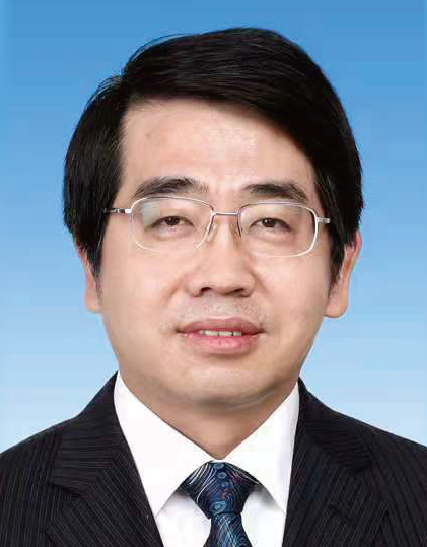
Keynote: Clear way to overtake based on the technology of flexible electronics
WeiHuang
Academician of Chinese Academy of Sciences
Abstract: The report entitled "Clear way to overtake based on the technology of flexible electronics" can be divided into four parts, including the disruptive innovation defining the future of the country, the development of flexible electronics industry of our country, the innovation team, and recent achievements, and opportunities and challenges of the flexible electronics industry.
At present, new technological revolution and industrial transformation are gaining momentum. The age of "Carbon-based material + Photoelectric process", spawned the flexible electronics technology and corresponding industry, and opened up a very broad development space. This is bound to change the way of human mode of production, lifestyle, and thinking.
Flexible electronics is on the basis of flexible materials, taking the flexible electronics devices as the platform, taking the optoelectrical technology application as the core. Flexible electronics is a disruptive technological innovation subject combining physics, chemistry, materials science and engineering, mechanics, optical engineering, biology, biomedical engineering, basic medicine and other disciplines, which offers new opportunities for the new generation of information technology revolution and the development of the era of intelligent manufacturing.
The Fifth Plenary Session of the Nineteenth Central Committee of the Party claimed that we should persist in the core position of innovation in the overall situation of our country's modernization, and put the technology self-reliance as strategic support for national development. The new generation of information industry, advanced materials, biotechnology, renewable energy, etc., that related to flexible electronics have been included in our country's national strategic emerging industries. The achievements of flexible electronics are transforming into a disruptive force leading to China's information technology reform and development. Nowadays, the electronic information technology of China is in a period of major change led by system innovation and intelligence. The in-depth research in the field of flexible electronics is a new engine driving innovation and development, and is a strategic opportunity for the fields of electronic information, intelligent manufacturing, etc., for our country.
BIO: Academician Professor HUANG Wei is an eminent scientist in the area of organic optoelectronics and flexible electronics. He was elected Academician of Chinese Academy of Sciences (CAS) in 2011 and Russian Academy of Sciences (RAS) in 2016. He is also an Academician of Asia Pacific Academy of Materials (PAM), ASEAN Academy of Engineering and Technology (AAET) and Pakistan Academy of Sciences. He currently holds the position of Chief Scientist of Frontiers Science Center for Flexible Electronics, NPU. Academician Huang is Vice President of China Institute of Electronics, Chinese Chemical Society, Chemical Industry and Engineering Society of China and Society of Management Science of China. He is currently President of the Federation of Engineering Institutions of Asia and Pacific (FEIAP) and a member of the Executive Board of World Federation of Engineering Institutions.
In the area of organic optoelectronics and flexible electronics, Academician Huang has made a large amount of systematic and innovative achievements. He has published more than 900 papers as the first author or corresponding author in Nature Materials, Nature Photonics, Nature Nanotechnology, Nature Communications, Advanced Materials, Journal of the American Chemical Society, Angewandte Chemie-International Edition, Chemical Reviews, etc., with over100,000 citations (ISI Web of Knowledge) and an H-index of 150. He is the most cited Researchers in the field of material science and chemistry. His contributions to these disciplines have led to wide-ranging publications that address both fundamental and more applied topics, and that places him amongst the 1‰ most highly cited materials/chemistry/informatics scientists in the world (ISI Highly Cited Scientist). He is also an invited reviewer for more than 60 well-known international academic journals and academic foundations. He has held over 360 patents which are granted in USA, Singapore, and China. Additionally, Professor Huang has published several academic books, such as Organic Optoelectronics, Bio-optoelectronics, Introduction to Organic Light-Emitting Materials and Devices etc.
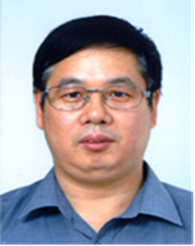
Keynote: IoT + AI: Explorations and Prospects
Huadong Ma
Beijing University of Posts and Telecommunications
Abstract: The Internet of Things (IoT) has been widely considered as the kernel technology for sensing the physical environments and providing smart services further. At the same time, the rapid development of Artificial Intelligence (AI) brings many opportunities to IoT. In this talk, we first introduce the challenges of intelligent Internet of Things. Combing AI theory, we discuss some explorations and recent research progresses on millimeter-wave sensing, operational 5G measurement, learning-based transmission and intelligent physical object search in the IoT environment. Finally, we outline the prospects of IoT development in the era of Artificial Intelligence.
BIO: Dr. Huadong Ma is a Professor of School of Computer Science, Beijing University of Posts and Telecommunications (BUPT), China. He is also Director of Beijing Key Lab of Intelligent Telecommunications Software and Multimedia, BUPT. He is Chief Scientist of the project “Basic Research on the Architecture of Internet of Things” supported by the National 973 Program of China from 2010 to 2013. He received his PhD degree in Computer Science from the Institute of Computing Technology, Chinese Academy of Science in 1995. His current research focuses on sensor networks and Internet of things, multimedia computing, and he has published over 300 papers in journals (such as ACM/IEEE Transactions) or Conferences (such as ACM SIGCOMM,MOBICOM,MM) and 5 books on these fields. As a co-author, he got the 2019 Prize Paper award of IEEE Transactions on Multimedia and the 2018 Best Paper Award from IEEE MultiMedia. He was awarded National Funds for Distinguished Young Scientists in 2009, the Natural Science Award of the Ministry of Education, China in 2017. He is an Editorial Board Member of the IEEE Transactions on Multimedia, IEEE Internet of Things Journal, and ACM Transactions on Internet of Things. He serves for Chair of ACM SIGMOBILE China. He is IEEE Fellow.
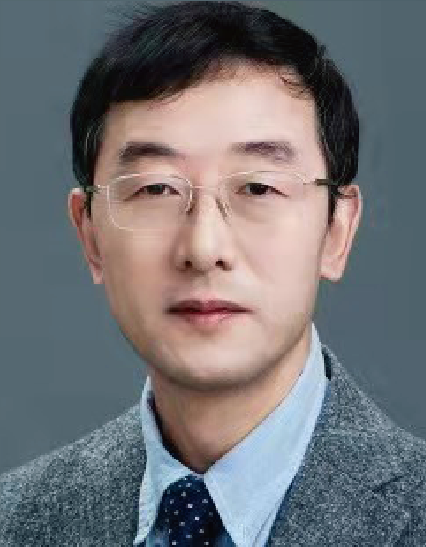
Keynote: Blockchain Technology and System
Keqiu Li
Tianjin University
Abstract: Blockchain technology has promising prospects in various application fields. This talk first introduces the evolution of the blockchain from 1.0 to 4.0. Then, we discuss the current hot issues and key challenges such as storage optimization, security defense, and vulnerability detection. Then, we introduce the blockchain system developed by the group. Finally, the open problems in blockchain area will be discussed.
BIO: Keqiu Li is a professor and dean of the College of Intelligence and Computing, Tianjin University, China. He is the recipient of National Science Foundation for Distinguished Young Scholars of China. He received his bachelor's and master's degrees from the Department of Applied Mathematics at the Dalian University of Technology in 1994 and 1997, respectively. He received the Ph.D. degree from the Graduate School of Information Science, Japan Advanced Institute of Science and Technology in 2005. His research topics include blockchain system, internet of things, and cloud computing. He is a Fellow of IEEE.
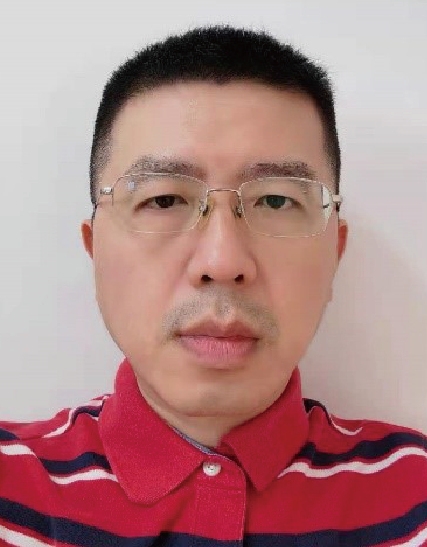
Keynote: Some recent results on AI security
Sheng Zhong
Nanjing University
Abstract: AI technologies are now extremely powerful. Therefore, related security threats are also increasing troublesome. In this talk, we survey some recent results on AI security. In particular, we cover privacy issues in MLaaS, adversarial samples, and also backdoor attacks.
BIO: Sheng Zhong received his PhD from Yale University. He used to work at State University of New York at Buffalo, receiving NSF CAREER Award and early tenure promotion over there. Currently he is a full professor (level 2) and director of undergraduate studies at Nanjing University department of computer science and technology. He chairs IEEE computer society Nanjing section and ACM Nanjing chapter. He is a recipient of NSFC Distinguished Young Scholar Fund, and an associate editor of various research journals.
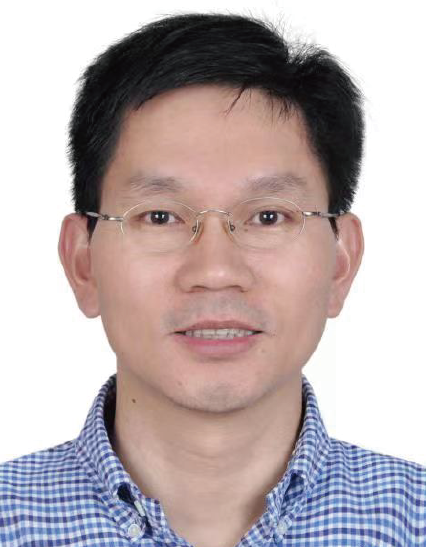
Keynote: Blockchain-empowered Secure Machine Learning
Jian Weng
Jinan University
Abstract: Machine learning (ML) has been adopted in a wide range of applications over the past decades, such as self-driving cars, practical speech recognition, and a vastly improved understanding of the human genome. Nonetheless, ML systems suffer from security issues that can be exploited by attackers. In this talk, I would like to share my thoughts on how blockchain technique can be utilized to secure machine learning. I will discuss the security, privacy, and fairness issues in machine learning, and try to empower ML by leveraging blockchain and smart contracts.
BIO: Jian Weng is a professor and vice president in Jinan University. He received B.S. degree and M.S. degree from South China University of Technology in 2001 and 2004 respectively, and Ph.D. degree at Shanghai Jiao Tong University in 2008. His research areas include cryptography, blockchain, network security, etc. He has published more than 100 papers in international conferences and journals such as CRYPTO, EUROCRYPT, ASIACRYPT, ACM CCS, Usenix Security, IEEE TPAMI, IEEE TDSC, etc. He received the Young Scientists Fund of the National Natural Science Foundation of China in 2018, and the Cryptography Innovation Award from the Chinese Association for Cryptologic Research (CACR) in 2015.
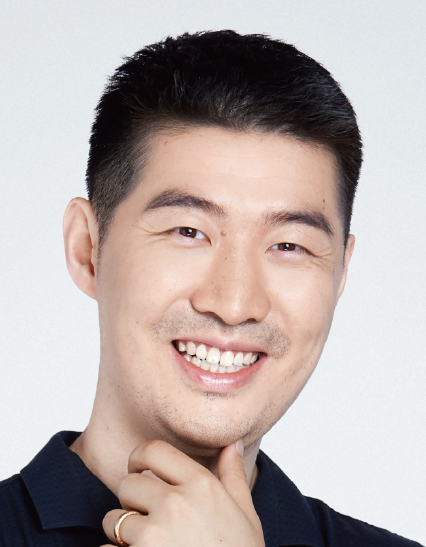
Keynote: Engineering Efforts on AI-assisted Scientific Computing
Linfeng Zhang
DP Technology Corp.
Abstract: We will present several theories and methods that integrate physical models with AI and high-performance computing (HPC) for scientific computing. Next, we will show the engineering efforts on boosting the computing power in terms of both scale and performance. Finally, we'll envision how the field proceeds in the era of cloud-native infrastructures and data-driven science.
BIO: Linfeng Zhang is the founder and chief scientist of DP Technology and a research scientist at the AI for Science Institute. He received his Phd degree from the Applied and Computational Mathematics at Princeton University. His research interests are mainly focused on developing machine-learning based physical models for electronic structures, molecular dynamics, and enhanced sampling. He's one of the main developers of DeePMD-kit, a popular deep learning-based open-source software for molecular simulation in physics, chemistry, and materials science. He is a recipient of the 2020 ACM Gordon Bell Prize.
News
-
May 15, 2021
Web site is up
-
May 15, 2021
Call for Papers publish
-
July 9, 2021Title and abstract due -
July 16, 2021Paper submission due -
Aug 04, 2021Paper registration & submission -
Aug 11, 2021Paper registration & submission -
Aug 12, 2021
Paper registration & submission
-
Sep 24, 2021
Acceptance notification
-
Oct 22, 2021Camera ready due -
Oct 31, 2021Camera ready due -
Nov 14, 2021
Camera ready due
-
Dec 06, 2021
Program is online
Copyright © 2021 International Conference on Parallel and Distributed Systems, Beijing
